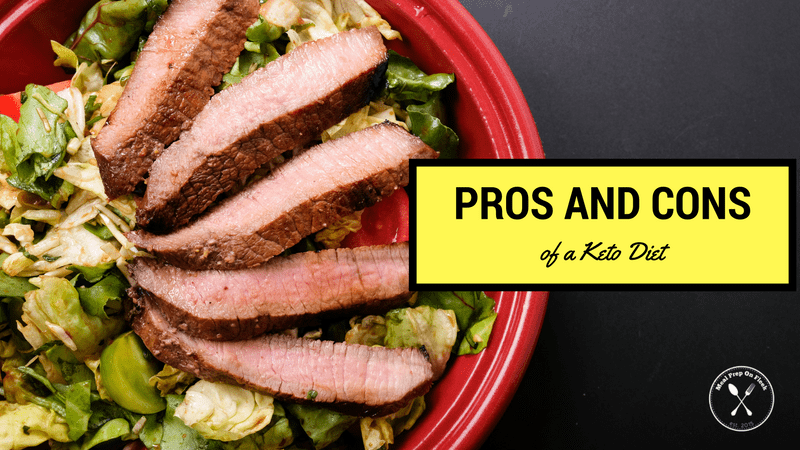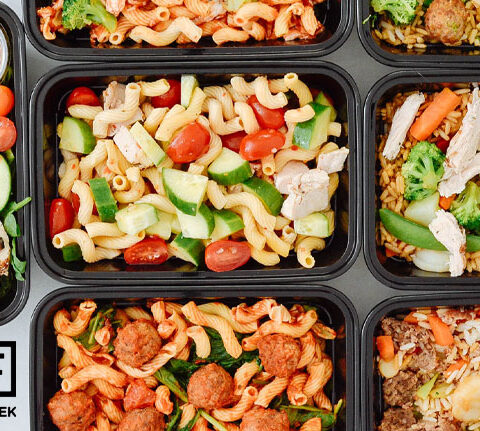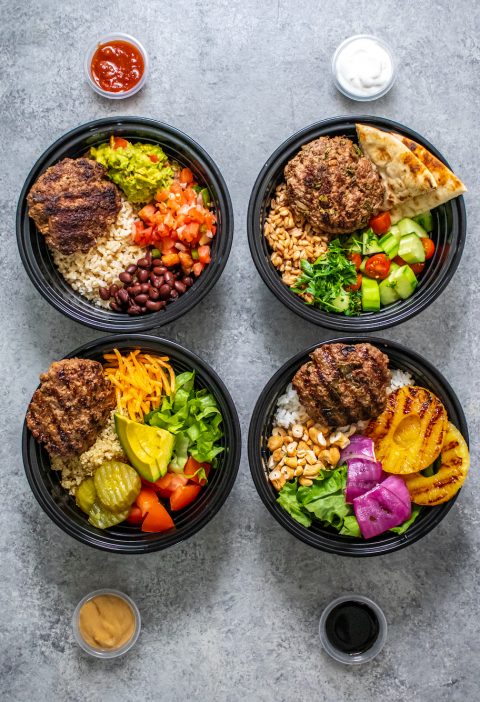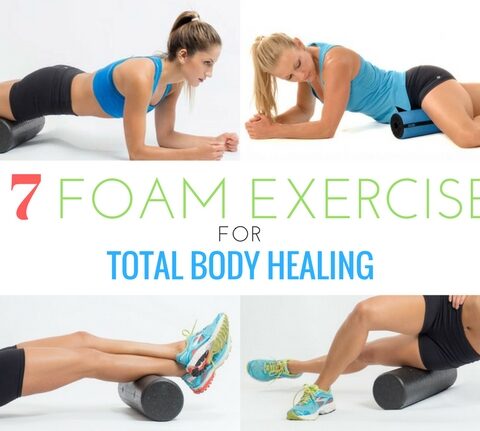The Complete Pros and Cons Of A Keto Diet
In the midst of all these diet and meal plans today, the ketogenic diet may have come to your attention. After all, there are thousands of people who follow it and claim the many health benefits, including weight loss! With this extremely low-carb diet and effective results, you may have wanted to try it out and see for yourself. But before you do that, there are some things you'll need to know, namely the good and bad things it can do for your body. Yes, the diet can do so much more than simply burn fat!
When on an extremely low-carb diet like this, your body will be facing a ton of changes. Unfortunately, not all of them can be the best for you! What exactly will you experience with this diet? Here are its pros and cons:
The Good
- Weight Loss
This is one of the most popular benefits of the diet. It can quicken weight loss for the long-term. Not only can it help you burn the fat you consume, but it also helps diminish hunger, having you eat fewer calories that result in more pounds shed. Your satiety increases because of the consumption of high fat and moderate protein foods.
- Reduces The Risk Of Type II Diabetes
Not only does the low consumption of carbs help you lose weight, but it can also help control insulin sensitivity and the release of certain hormones (insulin), which are a vital role in the development of diabetes. Through eliminating carbs from one's diet, you prevent an overload of insulin release, resulting in balances blood sugar levels. This can reverse your insulin resistance, which is what causes symptoms in those with diabetes.
- Reduces The Risk Of Heart Disease
You might think that a high-fat diet can lead to the risk of heart disease, but that's the complete opposite! It can lower the risk of cardiovascular disease, particularly in those who are obese and have high cholesterol. A study shows that those who follow the ketogenic diet have experienced decreased levels of blood glucose and LDL cholesterol.
- May Be A Protection Against Cancer
Did you know that a diet high in sugar can actually lead to the growth of cancer cells? Through eradicating sugar from your diet, it may actually "starve" the body's cancer cells as it won't be able to use fat for energy. There have been a few studies that show how this diet can be a treatment for cancer and other sicknesses.
- Can Fight Brain Disorders
There have been many studies proving that the keto diet can help treat and reverse neurological disorders such as Alzheimer's and Parkinson's disease. This is because the high-fat consumption improves the mitochondrial function and creates a neuroprotective effect. It can also help treat schizophrenic patients, normalizing their thoughts and reducing delusions or hallucinations.
- Increases Your Good Cholesterol
This is ironic, but the intake of healthier fats can help increase your levels of good cholesterol while decreasing the bad ones (LDL cholesterol). It improves your cholesterol patterns, which are also a huge factor in reducing the risk of heart diseases. By lowering LDL cholesterol and triglycerides while increasing HDL cholesterol, you can maintain a healthy heart.
- Helps With Your Metabolism
Besides controlling your appetite, this diet can help improve your metabolism, known as an effective treatment for metabolic syndrome. This syndrome can affect your weight, blood pressure, sugar levels, and cholesterol. But with a low-carb diet, you are able to improve all of those and maintain the levels without the adverse side effects.
- Better Mental Performance and Mood
Thanks to the consumption of healthy fats with omega-3 fatty acids, you will enjoy better mental performance and clarity. One can experience improved focus and memory because of DHA, found in fatty acids. A diet high in healthy fats can also improve your mood and keep it stabilized. For those who struggle with mood disorders, you will feel relaxed and level-headed thanks to less consumption of carbs.
As our body begins to burn ketones instead of carbs from our diet, our brain will do the same! And did you know that ketones have the ability to fuel up to 75% of our brain's energy needs? Because of this, ketones are a great alternative energy which maintains our brain cells' metabolism, thus protecting it and having us think better.
- Better Blood Pressure
Many studies show that following a low-carb diet can help decrease blood pressure levels in those who are overweight or have type II diabetes. Through lowering your blood pressure, you will be able to lessen your risk from various conditions like strokes or kidney diseases.
- Helps Prevent Seizures From Epilepsy
For people who suffer from epilepsy, low-carb diets can reduce the symptoms of this condition, particularly seizures. This is because your brain will depend on ketones instead of glucose for energy, which lessens the chances of seizures in children. Studies show that 56% of patients (from Blue Cross Blue Shield) experienced a drop in seizures by half or more.
The Bad
- Only Works For Short-Term
The keto diet is only used for short-term, only as much as 12 weeks. This is because prolonged deprivation of carbohydrates can lead to your body losing a lot of muscle and energy, eventually entering starvation mode without the required carbs it needs! And once your body enters starvation mode, it can actually be harder to shed the pounds. That means it isn't healthy to follow for the long run and can only be a short solution rather than a full lifestyle change.
- No Benefits For Athletic Performance
Like mentioned, you will experience muscle loss and fatigue as you continue the keto diet. With that being said, it can also take a toll on your athletic performance. Those who take sports with high anaerobic energy components like basketball and soccer won't have enough energy required for maximum performance. Because of this, you won't be able to reach your goals as quickly as you would compare to other diets.
Some people turn to MCT Oils to add the extra umpf to your keto diet. Read more: https://www.ketogenicsupplementreviews.com/best-mct-oils-and-powders/
- The Adaptation Process May Be Uncomfortable (KETO FLU!)
It will take about one or two weeks before you reach the state of ketosis and your diet begins to help you lose weight. Not only will the transition and diet be a bit uncomfortable, but many people experience the "keto flu," where dieters would experience a few symptoms like:
- Headaches
- Fatigue
- Bad breath
- Muscle weakness
- Lack of quality sleep
- Moodiness
- Brain fog
- Constipation or nausea
While these subside within two weeks, it certainly doesn't do much to encourage you in reaching your weight loss goals!
- Limited Foods Allowed
Let's face it. While you'll be allowed to eat very fatty foods like bacon and a lot of butter, the restriction from your favorite pastries or grains may end up leaving you with limited choices, especially when eating out. It requires a lot of restraint or constant meal planning, making it difficult to eat out or attend parties with high-carb foods or drinks (unless you're willing to pack your own food!).
Another con is that most of the food you ARE allowed to eat isn't as healthy as you expect food from a diet should be. Sure, there are avocados and salmon, but some people prefer juicy steaks, coffee with butter, or the infamous bacon.
- High Fat Raises Blood Cholesterol
When on the low-carb diet, there will be times you'll be eating food very high in saturated fats. While studies show that the diet can level out your cholesterol levels, following this diet for the long-term can result in higher blood cholesterol, which can do you more harm than good, particularly in your heart.
If you are pregnant, have high cholesterol levels or blood pressure, then it is best to consult a doctor beforehand to see if you are allowed to follow the keto diet.
Before You Begin The Keto Diet
Do you feel like this diet is right for you? Then that's awesome! But wait. Before you do take on the lifestyle change, you should take a few precautions to avoid shocking your body. Here are some things you may want to follow before you start your diet:
- Remember the risks of the diet and follow doctor's advice, especially when following a long-term dietary change to avoid erratic changes in your body.
- Prepare yourself for the "keto flu," or at least, fatigue. This is normal and temporary. I recommend that you get enough sleep and avoid sugar for energy spikes (which is not allowed in the diet!).
- Transitioning to a keto diet may be difficult, especially if you are used to a high intake of carbs and sugar. I recommend that you first lower down your intake of carbs slowly rather than to shock your body. The proper macro adjustment to lose weight during the keto diet would be consuming: 70% fats, 25% protein, and 5% of carbohydrates.
- ALWAYS count your macros. This is more important than your calorie intake in this diet if you want to reach ketosis. Focus more on fat and check protein intake, making sure that you are only eating a moderate amount to avoid disrupting ketosis.
- Because you won't be taking in a lot of carbs, you'll have some micronutrient deficiencies, namely in magnesium, iron, potassium, and thiamin. Besides getting a proper amount of fiber in your diet, I also recommend that you take multivitamins and supplements to keep your health in check.
- Bacon and oil aren't the only things you can consume! There are many healthier options, such as avocados, berries, salmon, eggs, or green leafy vegetables.
- The keto diet may only take around 12 weeks, but three months is still a long period of time that may come with a lot of ups and downs. Stay determined and stick to the plan but know your limits. If you ever feel extreme discomfort or pain because of your intake, then seek medical help and stop your diet immediately.
- Once you have finished your 12 weeks of the ketogenic diet, slowly transition back to a "normal" diet and increase your carb intake little by little rather than consuming too much of it on the first day.
Wrapping It Up
And there you have it! With the proper knowledge of what the ketogenic diet can do for your body, you'll be able to see if it's fit for your weight loss and fitness goals. As long as you seek advice from medical professionals and manage any conditions while on a diet, then you can reap many of its health benefits.
I hope that this comprehensive guide to the pros and cons of a keto diet informed you of what you need to be aware of before taking on the change! So don't wait any longer and start your journey today.
If you have any questions or would like to share your tips and experiences when on a keto diet, then comment down below. I would love to hear what you have to think.
--
Author’s Bio:
My name is Layla and I’m a writer at Howtonight.com - lifestyle blog which mostly focuses on health and nutrition but we also publish articles related to pets, travel, and entertainment.








Your blog is simply amazing. I enjoy reading your blog, got to know many pros and cons of Keto diet. Keto diet also improve your metabolism surprisingly.
There are many health benefits of keto genic diet like: It can help you to lose weight and even speed up weight loss. It can reduce your risk of getting certain diseases like heart disease
Some studies show that being on a keto diet can protect you from cancer and it can also be a type of treatment for cancer and other health issues
http://ketodietmealplan.net/
Thank you for such a nice blog. I really enjoy reading your blog. Keep up the good work
http://ketodietmealplan.net/
I spent a month in Spain recently and ate 'native'. Got home and realised that the high fat low carb diet was just amazing particularly after feeling bloated with my normal diet of burger buns, bread, potatoes etc back home. Did some research and realised that I while I was away, I was 90% towards a keto diet so I've continued it. Feel great - lost 5kgs of visceral fat over 4 weeks and absolutely recommend a keto diet.
I have been on the keto diet and followed it very closely for almost 2 months . I am finding that I am losing inches and some weight but the scale moves down very slowly for me. Of course I am more concerned with inches but I really really miss my fruit and veggies that are normally in my diet. My question : If I were
To go off the keto diet and went back to a healthy less fat diet what will that do to my body? I am afraid of gaining back what I have taken off but I want to lose another 10 lbs or 3 inches around my waist/hips. I find my energy level at bootcamp is very low, I run out of gas after 1/2 hour or so. Thanks in advance for your advice!